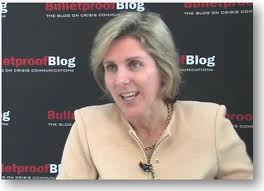By Andrew Warshaw
March 28 – FIFA’s reform process, designed to bring about proper transparency and accountability, continues to receive negative publicity, with one of its leading advisers now accusing the organisation of “neutering” the originally suggested measures for much-needed change.
Alexandra Wrage, a Canadian member of the Independence Governance Committee set up by FIFA to formulate an anti-corruption package to take forward to the FIFA Congress in Mauritius in May, claims FIFA’s executive committee last week watered down many of the IGC’s ideas and wants them re-instated by tomorrow – the deadline for adding items to the Congress agenda.
Sepp Blatter has pronounced himself satisfied with the various proposals being voted on in Mauritius but Wrage claims they don’t go far enough – including integrity checks for future executives being carried out independently rather than within the FIFA structure by its six confederations.
“The integrity checks will go forward but they have, in my opinion, been gutted,” she said. “This is absolutely critical: centralised, neutral, independent integrity checks. All three of those components are really important. And now they are decentralised and largely self-reporting.”
Wrage has even considered resigning as a result. “I can only speak for myself but that is one of the options – there’s very little point continuing if our recommendations are not being accepted,” she told the BBC. “Key provisions that are accepted in the corporate world have not been accepted here – our recommendations just seem to fall off the agenda.”
The World Cup bidding process is another area Wrage is concerned about as the fallout over the award of the 2022 tournament to Qatar shows no sign of abating. The Gulf state won a landslide victory despite FIFA’s inspection team flagging up several risk factors, not least the heat, in their official report.
To avoid future allegations of deal-making and skulduggery, in future FIFA’s entire 209-nation membership will decide on future World Cup hosts – once its executive committee has drawn up a shortlist of no more than three contenders. But Wrage warned that even this system, which will come into effect for the 2026 hosts, was not sufficiently “robust” although she didn’t explain what other measures were needed to ensure the process was clean.
Contact the writer of this story at moc.l1744443534labto1744443534ofdlr1744443534owedi1744443534sni@w1744443534ahsra1744443534w.wer1744443534dna1744443534
